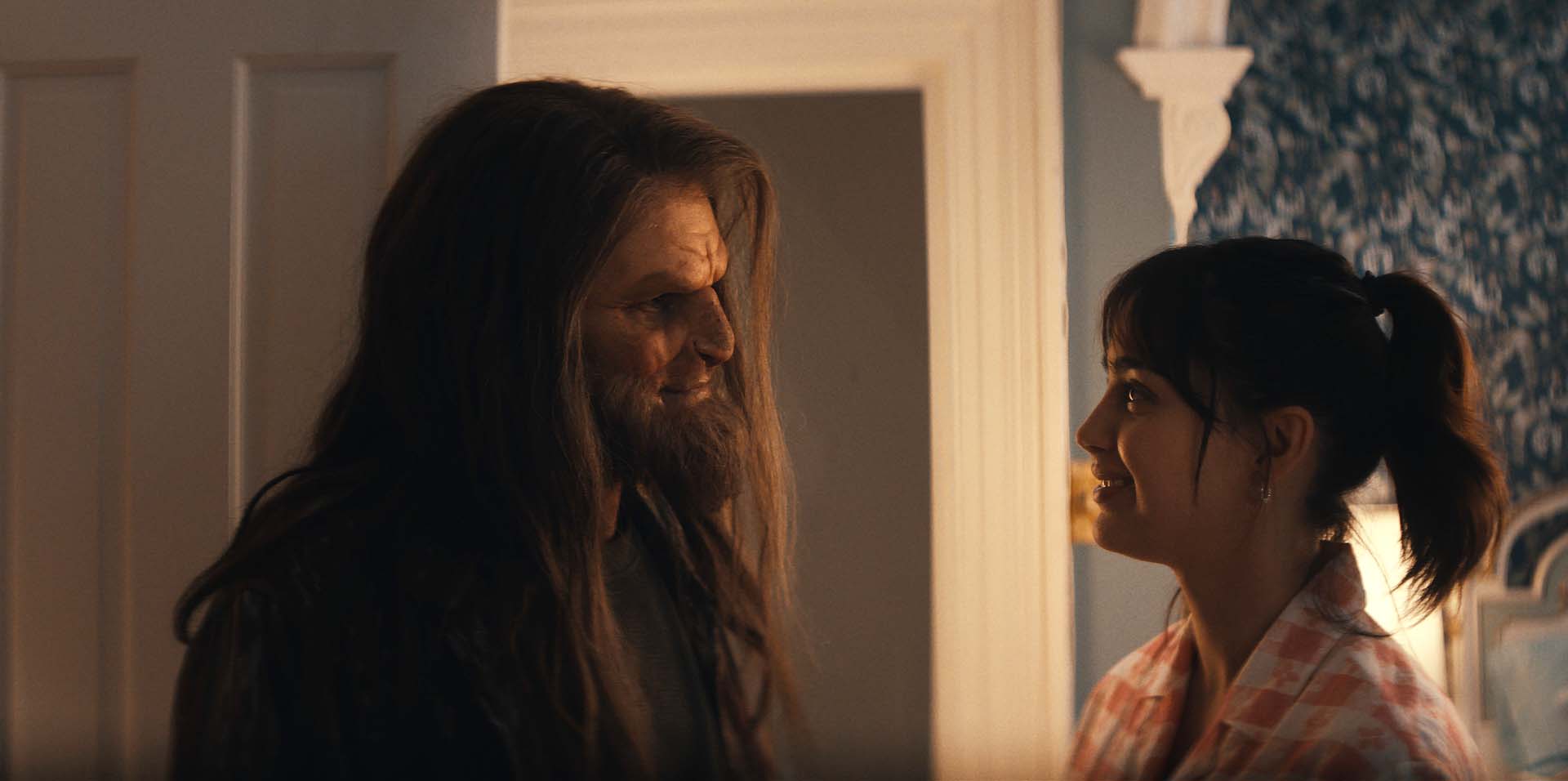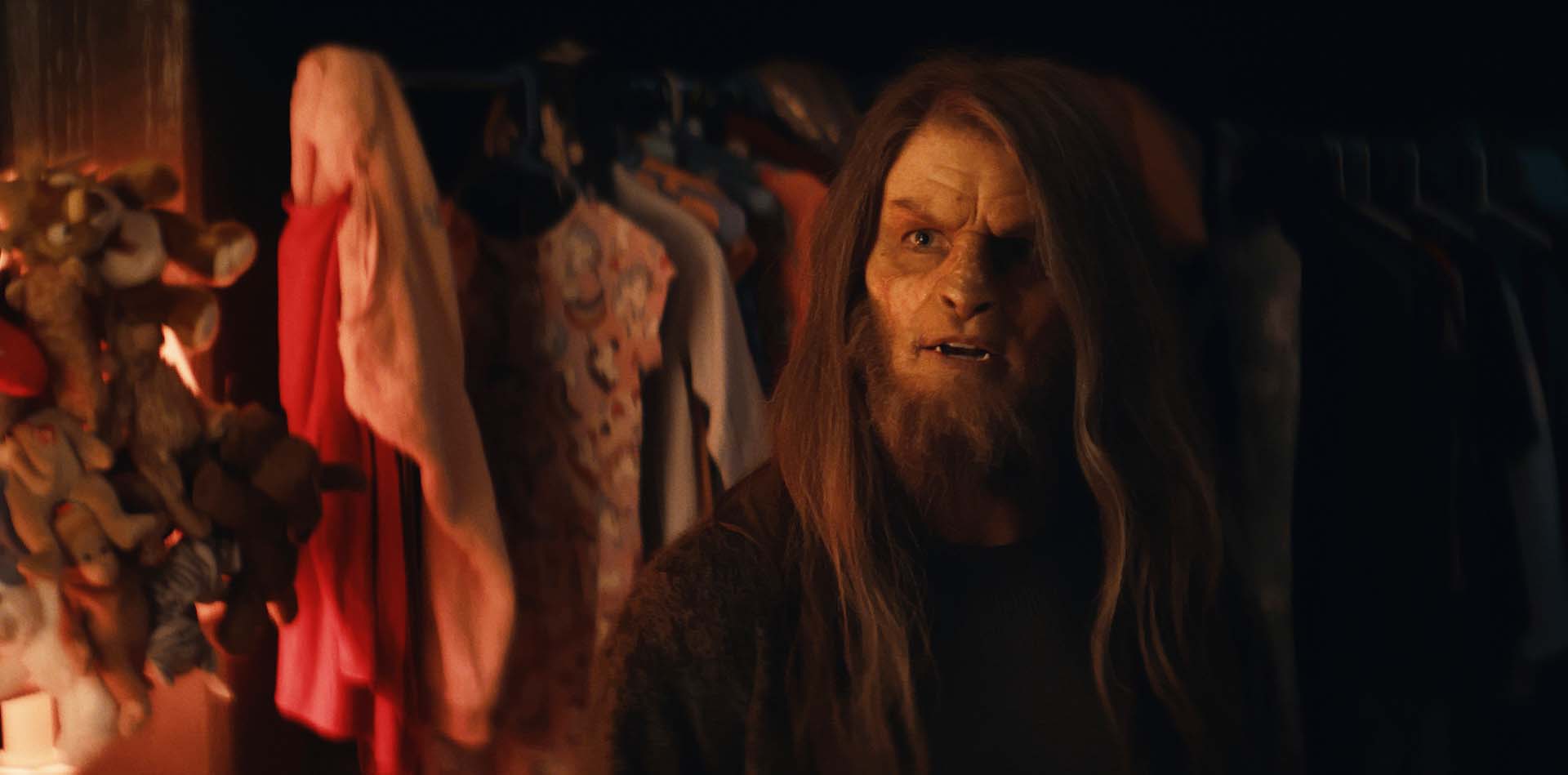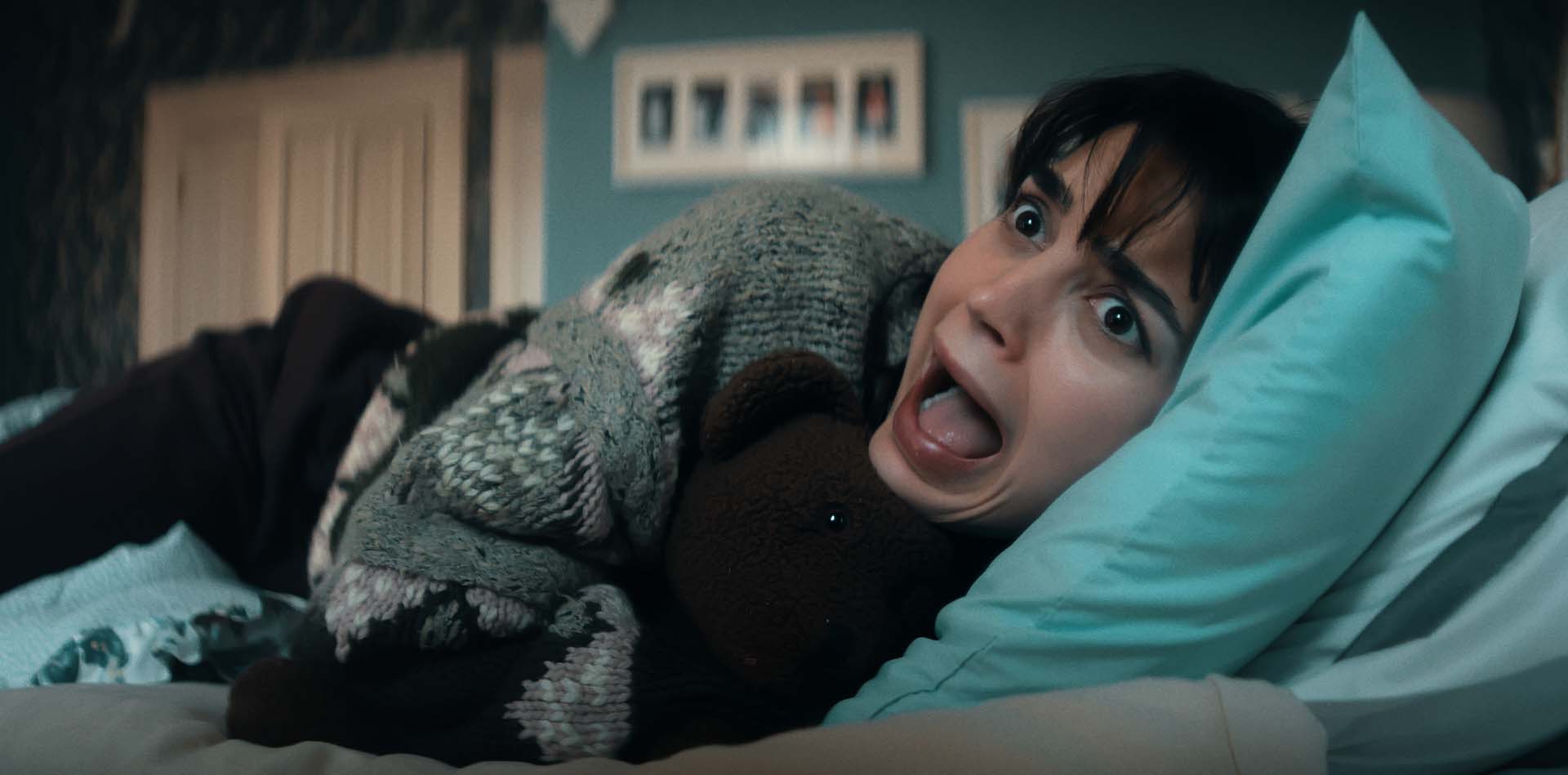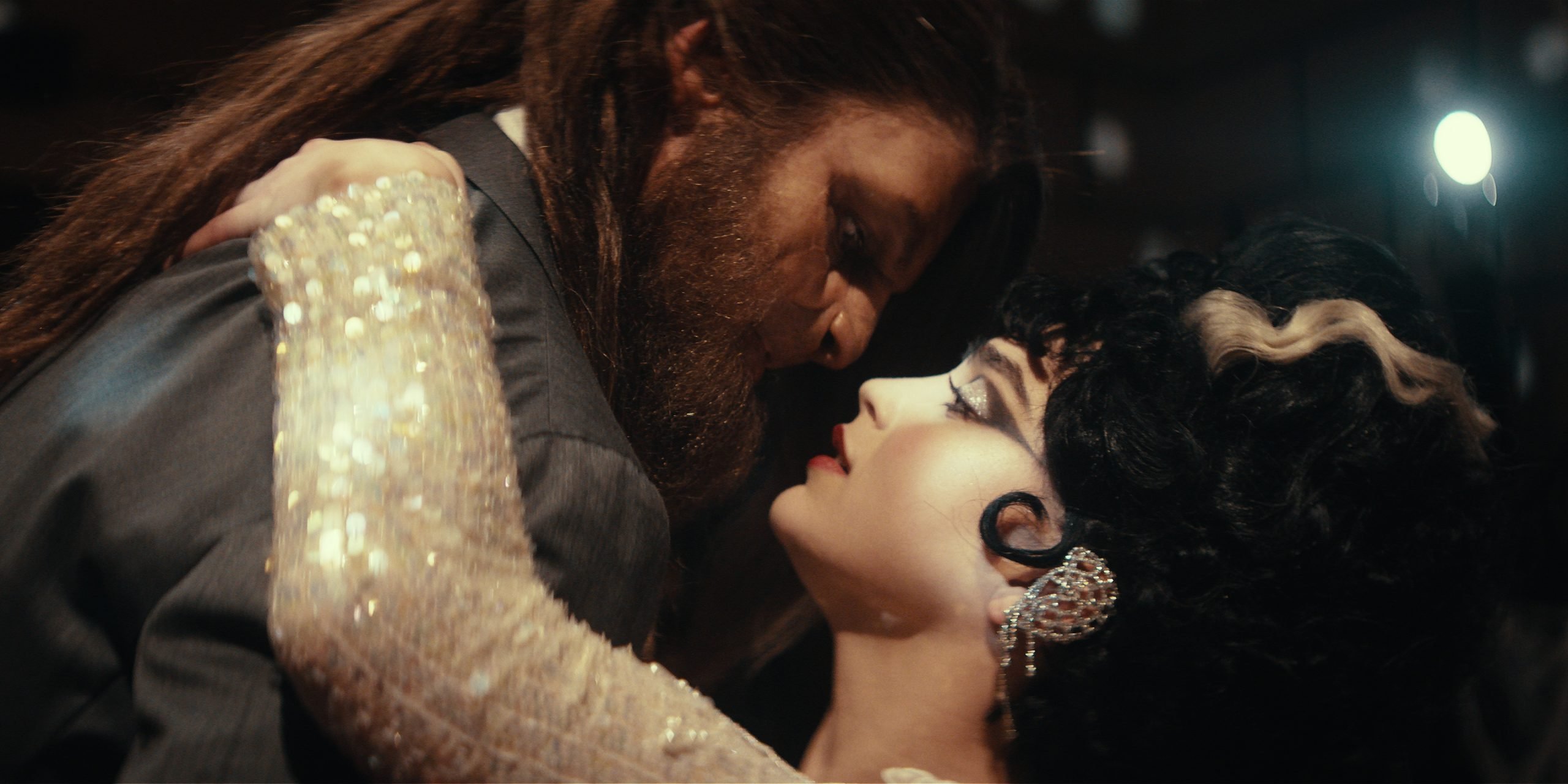As horror’s current new wave crested in 2014, people unaccustomed to taking the genre seriously found themselves forced to. But then horror started taking itself seriously, and if there’s one way to suck the air out of a provocative narrative movement, it’s navel gazing. Being “serious” isn’t a crime, and horror remains a big-top circus with room for every creative sensibility. But howling demands that horror center Important Ideas™ can smother the genre’s perverse joys—like the thrill of romance between a girl and the beast dwelling in her childhood home.
Think of Caroline Lindy’s Your Monster, an adaptation of her 2020 short, as the bubbly sibling of Guillermo del Toro’s The Shape of Water, the Best Picture–winning love story between a deaf woman and an amphibian man. In Your Monster, Laura (Melissa Barrera) struggles with a cancer diagnosis and a savage breakup. She moves back in with her parents only to find Monster (Tommy Dewey), who has lived in her bedroom closet since she was a kid. Having a roommate ruffles his fur, and she’s not exactly thrilled with the new living situation, either.

Vertical Entertainment
A Frightful & Forbidden Infatuation
They’re an odd couple. But beneath Monster’s fearsome exterior and sardonic worldview lies a warm, nougaty center. Monster gives Laura solace after a hideous betrayal; Laura coaxes out Monster’s humanity. They become buddies. Before long, they become more.
Horror is no stranger to humor, and comfortably shares a niche with lovesick yearning, too. It’s less common to see these three sensibilities gel on screen, with standouts like 2013’s delightful rom-zom-com Warm Bodies as exceptions to the record.
Your Monster caps off 2024’s horror rom-com trend, joined by Lisa Frankenstein, Beetlejuice Beetlejuice, and Humanist Vampire Seeking Consenting Person. Among that company, Lindy’s film hits the expectations of its very specific brief the best; its sweetness is offset with acerbic undercurrents, heartbroken fury, a thin coat of splattered viscera, and, as a topper, a broken taboo.

Vertical Entertainment
Love the One You’re With
The creature-feature blueprint doesn’t usually include bedroom scenes, but Your Monster walks right up to that edge. It’s scary. It’s steamy. It also works. Lindy chooses buoyancy as her basic tone, and shifts seamlessly into menace seamlessly when needed. It isn’t a monster movie if the monster isn’t scary, and Monster has claws for a reason. The character’s stripped-down presentation has dual purposes: He’s just recognizably cute enough to justify Laura’s crush while respecting his primal nature, which puts weight on their courtship.
It’s a consequential moment that strikes immediately as dangerous and wrong, but the rapport Barrera and Dewey share activate Your Monster’s emotional stakes–a critical goal for making the film work, or any attempted horror rom-com, for that matter. Even in a movie where the lovers-to-be are both human, the “rom” and the “com” are rooted in horror’s trappings, which means they’re imperiled. Who has time to find Mr. or Mrs. Right when a masked maniac is on the loose?
In Laura’s case, she’s balancing a terminal illness with her work as an understudy in the musical she and her ex wrote together, and which is on its way to opening night (with another actress in the part he promised her, no less). It’s a miracle she can muster the energy for romance at all. Monster knows how to sweep a lady off her feet, though, the hirsute Romeo to her Juliet.

Vertical Entertainment
Animal Magnetism
Barrera is livelier here than in her other recent horror roles, like the Scream reboots and April’s Abigail, and balances charm with neuroses as Laura spins out. As Monster, Dewey counters Barrera’s bundled nerves with brusque mischief; even in a tender scene where Monster recites Shakespeare’s sonnet for Laura (a nod to Dewey’s familiarity with the Bard), it feels like he’s pranking her. But Your Monster never dives so deep into its rom-com component to subsume the horror. Really, it’s the other way around.
Star chemistry is key in romantic comedies, and what Your Monster pulls off through its approach to the form is practically inspiring. Barrera and Dewey’s allure isn’t chemical at all; it’s feral. They’re a couple, all right, but a couple of animals. Contemporary horror is in a good place, but could stand a shot of levity; for directors keen on lightening up the genre, this film is the example to follow.




